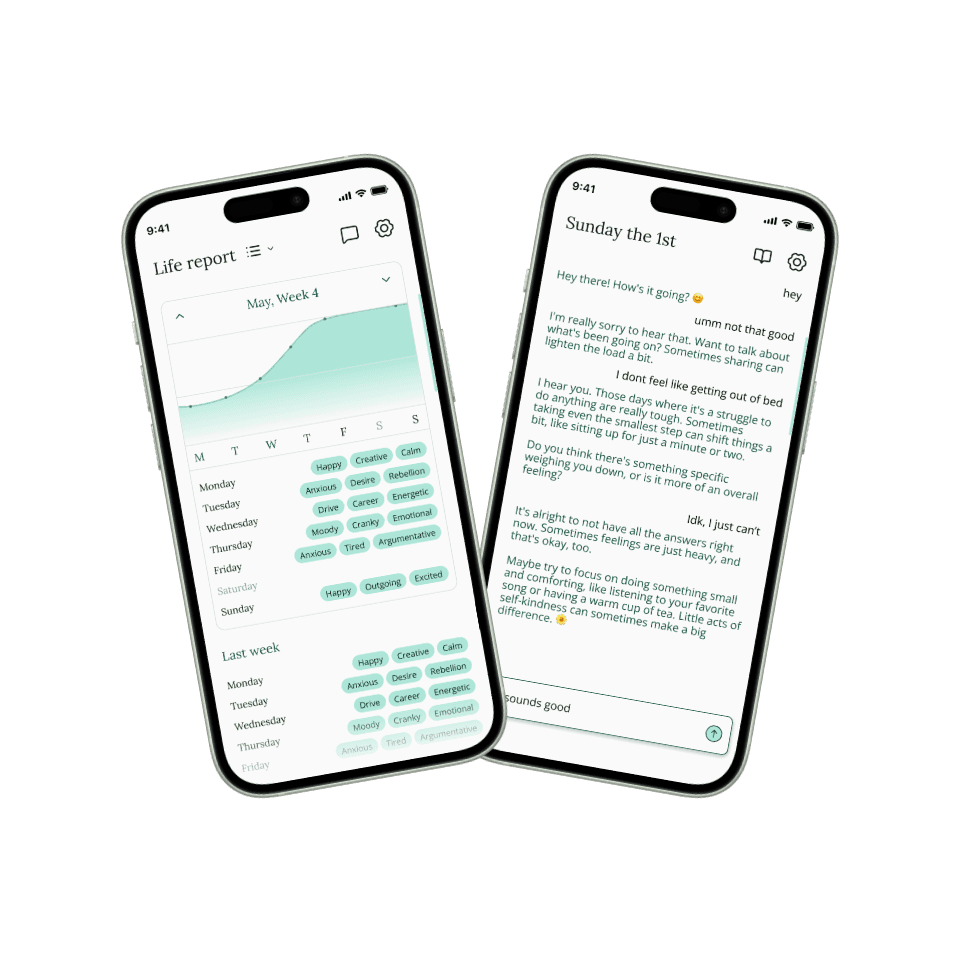
Warming up at the start of a session
Warming up at the start of a session
Jun 20, 2024
Jun 20, 2024
Before diving into deep work, take a few minutes to transition intentionally into the appointment. A brief "warm up" helps you get grounded and primed for productive processing.
Here are some tips to warm up at the start of your session.
Body Awareness
Do a quick body scan. Notice any areas of tension and consciously breathe into those spaces. Getting present in your physical form aids mental presence.
Emotional Check-In
Name your current emotional state and mental weather out loud. "I'm feeling anxious today" or "I've been stuck in self-criticism lately." This glimpse into your interior provides helpful context.
State Your Intention
If you set an intention for what you wanted to focus on, restate it clearly. "My goal was to explore my codependency patterns." This centers the aim.
Share Key Updates
Give a brief bullet-pointed update on major life events since your last session - changes, stressors, milestones. This keeps your therapist looped into circumstances. You can use your journal or an app like Verba to communicate what you have been up to in the past few weeks.
Settle Into the Space
For in-office sessions, try grounding techniques like deep breathing or meditation. For virtual sessions, handle any lighting, close extra tabs, silence notifications.
Voice Your Needs
Based on your state, let your therapist know if you need any specific kind of support upfront. "I could use more containment" or "Using a timer may help my focus."
Taking just 5-10 minutes to get centered allows you to fully show up for the vulnerability and openness required for transformative work. A purposeful warm up primes you up to go deeper.
Before diving into deep work, take a few minutes to transition intentionally into the appointment. A brief "warm up" helps you get grounded and primed for productive processing.
Here are some tips to warm up at the start of your session.
Body Awareness
Do a quick body scan. Notice any areas of tension and consciously breathe into those spaces. Getting present in your physical form aids mental presence.
Emotional Check-In
Name your current emotional state and mental weather out loud. "I'm feeling anxious today" or "I've been stuck in self-criticism lately." This glimpse into your interior provides helpful context.
State Your Intention
If you set an intention for what you wanted to focus on, restate it clearly. "My goal was to explore my codependency patterns." This centers the aim.
Share Key Updates
Give a brief bullet-pointed update on major life events since your last session - changes, stressors, milestones. This keeps your therapist looped into circumstances. You can use your journal or an app like Verba to communicate what you have been up to in the past few weeks.
Settle Into the Space
For in-office sessions, try grounding techniques like deep breathing or meditation. For virtual sessions, handle any lighting, close extra tabs, silence notifications.
Voice Your Needs
Based on your state, let your therapist know if you need any specific kind of support upfront. "I could use more containment" or "Using a timer may help my focus."
Taking just 5-10 minutes to get centered allows you to fully show up for the vulnerability and openness required for transformative work. A purposeful warm up primes you up to go deeper.
View more insightful blog articles
Today's tune



Track your mental health and get support between sessions with Verba
Learn more

Track your mental health and get support between sessions with Verba
Learn more

Track your mental health and get support between sessions with Verba
Learn more

Advait Naik
Advait is the founder of Verba and works at the intersection of psychology, design and technology to create a product that can help humans be more self aware through clarity